Government lawyers consider Belhaj rendition damages
- Published
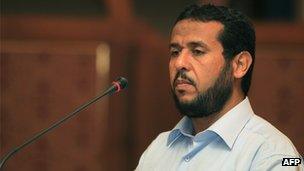
Abdul-Hakim Belhaj was a leading rebel figure in the fight to topple Col Gaddafi in 2011
Lawyers defending UK government departments from charges of assisting in the rendition of a Libyan man say they will consider paying him damages.
Abdul-Hakim Belhaj says he was seized in China in 2004 as he was about to fly to London to claim asylum.
He claims British intelligence tipped off the Libyan authorities and helped the US arrange his rendition to Libya where he says he was tortured.
Mr Belhaj was the leader of an Islamist group which fought the Gaddafi regime.
He says he was with his pregnant wife when they were captured and detained before they could fly to Britain.
Now a minister in the Libyan government, Mr Belhaj claims he was subjected to brutal mistreatment while being held for six years in jails in Tripoli and is suing the Home Office, the Foreign Office, MI5, MI6, as well as the then-Foreign Secretary Jack Straw, former MI6 counter-terrorism director Sir Mark Allen and the attorney general.
Each of these, according to Mr Belhaj's lawyers, abused their public office and was responsible for his false imprisonment.
'Willing to listen'
At a hearing on Tuesday at the Royal Courts of Justice, Rory Phillips QC - on behalf of the British government - said his clients "will indeed be pleased to enter into a settlement process to draw a line under this case."
But this may not be possible as, while Mr Belhaj has offered to settle his claim for a token payment of £1, he is demanding an apology.
His barrister, Richard Hermer QC, told the court Mr Belhaj and his wife "are willing to listen and to talk". But if "basic requirements are not met there will be a trial", he said.
This is thought to be a reference to the couple's insistence on an admission of liability from the UK authorities.
This would seem unlikely, particularly as the Metropolitan Police are investigating whether any criminal offences were committed.
The court also heard that if the case does go to trial, ministers are likely to apply for newly available special powers to hear sensitive cases in secret court hearings.
The Justice and Security Act, which comes into force in July, allows evidence to be heard behind closed doors by security-vetted special advocates - what critics call "secret courts".
Ministers changed the law because they argued that cases such as this cannot, in the interests of national security, be heard in open court. Civil liberties groups say using "closed material procedures" will prevent someone who alleges wrongdoing from getting a fair hearing.
The judge, Mr Justice Simon, said any trial "has the potential to be lengthy" and that "it must be possible to reach a solution".
- Published4 March 2013
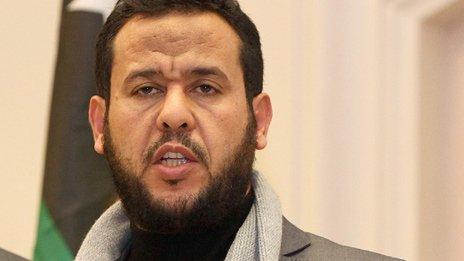
- Published4 March 2013
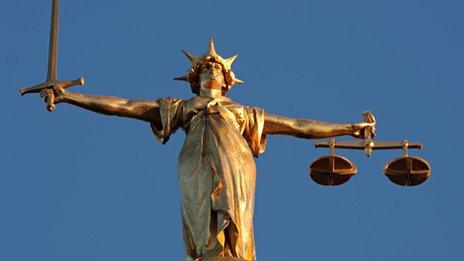
- Published15 May 2012
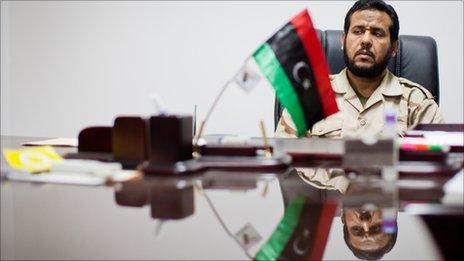
- Published8 April 2012

- Published11 April 2012
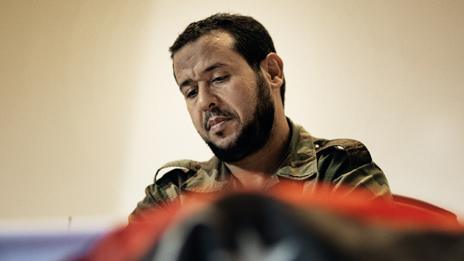
- Published10 May 2018
